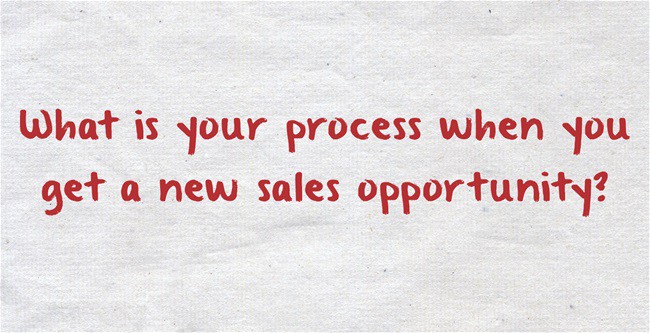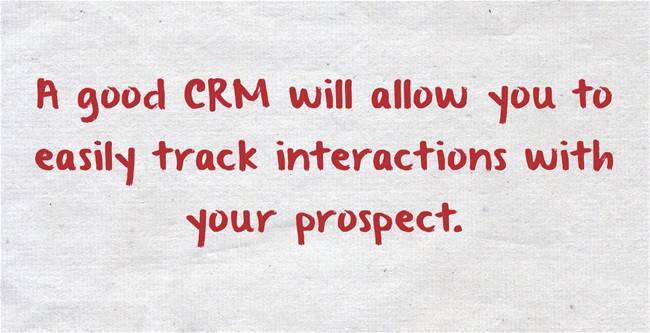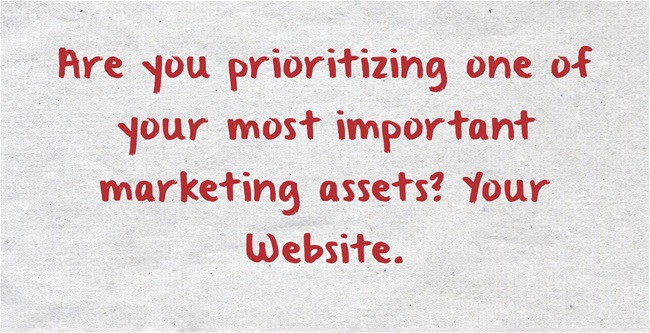
Marketing | Sales | 05.24.2018
CRM Explained: What is the Purpose of Customer Relationship Management?
For the purposes of this post, I’ll be referring to sales CRMs in particular.
I have a question for you. What do you do when you get a new sales opportunity in your business?

For many companies, the answer to this questions is lacking: “Um, well, I call them and try to talk to them”. When you’re disorganized with your sales and prospecting department, the missed opportunity can be exponential.
CRM stands for Customer Relationship Management.
Here’s the Scenario
Let’s say that you work for a small construction company called Stellar Construction. You’re the entirety of the sales and marketing department. Yes, the buck stops here. You come in on Tuesday morning and to your pleasant surprise, you have a new lead from your website. A local homeowner, Mike, is seeking a complete bathroom remodel and found you on a Google.
Related: 4 Tips for Making Your Website SEO Friendly
Like a champ, you call Mike immediately to try and get him on the line. But then something so entirely familiar happens, he doesn’t answer. You decide you’ll put a note on your calendar to try again on Friday. Friday comes and you get stuck in meetings all day and inadvertently forget to call Mike. Time drifts on and inevitably, when you think about Mike again and call him two weeks later, he’s already found a company.
You lost the deal and think to yourself, “well, this happens, no biggie”.
What You Didn’t Know
Unfortunately, you were missing some crucial information. Mike had a lot on his plate and was planning a family vacation but wanted to have some contractors to talk with after he returned. In hindsight, he wishes he would have waited to call companies until he was back, but nevertheless, he called. He returned the following Monday and was disappointed that you never called back. Afterall, you were one of his top two companies. Unfortunately, as a man of principal, Mike decides if you can’t call back, he’s going to take that as a sign. Despite your myriad of positive reviews, Mike moves on.
In this scenario, you didn’t realize that Mike was leaving for vacation. You had no system to manage your follow up tasks for him, so it fell through the cracks. Mike didn’t realize you called him shortly after he reached out and assumed you simply didn’t care for his business.
Do you understand the big issue here? You’re disorganized.
In this case, your sales system is essentially your calendar and the positive hope that you can keep everything organized in your head. But is that really possible? Can you really keep track of 10-15 leads in your head?
My friend, you can’t. You’re in desperate need of a customer relationship management (CRM) tool.
What is a Sales CRM?
In essence, a CRM helps you manage 4 crucial items:
- Customer details
- Ownership responsibilities
- Deal information
- Interactions & progress
- Action items
Customer Details
Customer details include the lead’s name, email, phone number and title. If you enter all of this information into your sales CRM right away, you’ll save a lot of time hunting down their name or contact information. In some cases, you might avoid losing their information altogether.
Bonus Tip: Consider integrating your website contact form directly into your CRM so you don’t have to enter contact details manually.
Ownership Responsibilities
Was your sales associate supposed to follow up on that lead, or was that your responsibility? Was it just on you, or were you working together?
A good CRM will help you understand who owns what and can spare you from some unsavory finger pointing.
Deal Information
Perhaps most importantly, a CRM should help you keep all of your potential deal information nice and tidy. What is your prospects timeline? Have they disclosed their budget? Is this a hot, warm or cold lead? Do you have a potential close date?
Another thing you might want to know is how urgent the prospect is for your product or service. At our web design agency, an important question we ask is “What’s driving the prospect’s need for a new website?”.
Interactions & Progress
This is probably the hardest thing to keep track of in your head if you’re not using a CRM. A good CRM will allow you to easily track interactions with your prospect and how far you are along in the process. Interactions include phone calls, in-person meetings, and email. Progress indicators may include an initial inquiry, your first meeting, proposal review, followup and closing on a deal.

Action Items
In the scenario above, the salesperson decided to put a calendar reminder to call Mike, the homeowner, back at a later time. But when the salesperson missed the reminder, the action was missed and ultimately the deal was lost.
Instead of using a calendar for sales followup, a solid CRM will include action items for each prospect. Even if you don’t call them when you anticipated, you’ll still have the action item there to remind you. It would be late, but the deal wouldn’t be lost, and that’s crucial.
How to Choose a CRM Solution
For the majority of companies, a 3rd-party, ready-to-go CRM is more than sufficient. Bigger companies may consider developing something custom, but that’s not usually needed. Here are a few considerations when doing your research.
Free Trials
Most CRMs will give you some sort of a free-trial, but if you’re considering one that doesn’t, you may want to negotiate with the CRM’s sales team to see if you can still get a trial run regardless. This is really important and may be the most important consideration because, at the end of the day, a free trial will help you see if a customer relationship manager actually works for you.
Price
Price is relatively important, and you can’t be paying too much, but I would be cautious about trying to save a few bucks if you desired system is a little bit more spendy. Here’s the logic, if a more expensive CRM can help you win even one customer, per year, that you wouldn’t have won without it, then the cost difference would likely be justified.
Reviews
Save yourself some frustration and time by looking into others’ experience with a particular CRM. Two great software review sites for something like this would be Capterra and G2 Crowd. Just type in the name of the CRM you’re considering and if it’s a good one, it’ll likely have some reviews posted.
Another simple approach is to type the name of the software and the keyword “reviews” on Google. As an example, if you were to google Jordan Crown reviews, you’d see 3 or 4 review sites regarding our web design agency.
Features
And last, but certainly not least, you should consider the features of the potential CRMs that you’re considering. Try and look into the future a bit and think through the kind of features you might use someday. You can always switch later, but it’s very possible, or even likely that when switching you’ll lose important data. So, it’s better to put in the legwork and try to get the right CRM the first time.
Your Website and Your CRM
As I mentioned previously, most CRMs have the ability to hook into your contact form so that new lead information is automatically added to your CRM. This is a great feature for many companies as it will make organization even easier.
But here’s an important question. Could your website be a detriment to your CRM?
Here’s the point. It doesn’t matter how amazing your CRM is if your website is dropping the ball and keeping prospects from reaching out to you. Do you have prospects who could have been customers that are leaving your website? If I were you, I would want to find that answer to that question.
Investing in Your Most Important Asset
For most businesses, their website is their most valuable marketing asset.

Do you know how many visitors come to your website? Do you know what they’re doing when they’re there? What pages are they visiting? What content are they reading? In order to make the best use of your new fancy-smancy CRM, it’s really important that you prioritize your website as one of, if not the top, marketing asset for your company.
Related: 5 Tips for Selecting an Agency for Your New Website
Once you ensure that your website is optimized for leads, you’ll be in a great position to put your customer relationship management software into full gear.
Closing Thoughts
Well, I sure hope you’ve found this article useful. We started using a sales CRM 3 or 4 years ago and now we can’t imagine life without one. If you’re looking for a straightforward, yet feature-rich CRM, you may want to consider PipeDrive. We ultimately chose Pipedrive after looking into a few CRM solutions and we’ve really loved our decision.
Do you have CRM questions? I’d love to help answer any questions you may have in the comments section below.
[mc4wp_form id=”12260″]